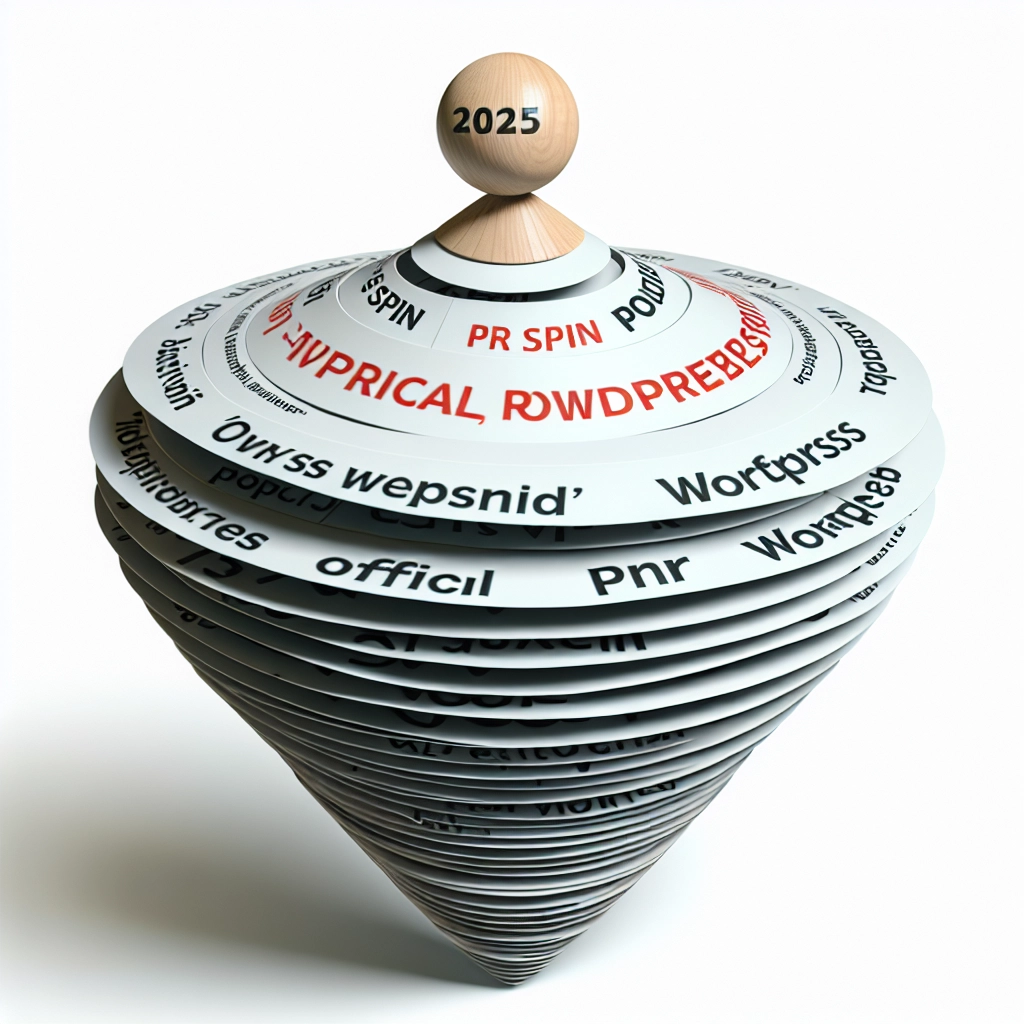You might have noticed a new report published on the official website of WordPress titled "WordPress in 2025." The emphasis on "official" speaks volumes about the strategic placement of such content. While the document contains noteworthy insights about the CMS industry, its core purpose seems to be to ease the minds of executives at large companies who might be considering significant investments in WordPress-related projects.
Produced by Human Made, an enterprise WordPress agency, the report seems to underscore the merits of WordPress, which shouldn’t be surprising. However, it hints at a strong promotional angle aimed at persuading big corporations to invest in WordPress solutions.
Show Me the (CMS) Money!
There’s a striking summary of funding trends in the CMS sector outlined by Human Made. The investment landscape has seen considerable ups and downs over the years:
- 2020: Less than $100 million (pre-hype)
- 2021: $1.5 billion (peak hype)
- 2022: Approximately $300 million (reality check)
- 2023: Minimal funding
- 2024: About $300 million
This funding fluctuation mirrors the “headless CMS gold rush” that defined 2021. Venture capitalists poured money into platforms promising revolutionary advancements in content management through modern, API-first solutions. Fast forward to today, many of those cutting-edge platforms are now in a rush to incorporate basic content editing capabilities that WordPress has already established.
The AI Angle (Because of Course)
No enterprise report in 2025 would be complete without a nod to AI, and this one certainly doesn’t disappoint. The report posits that WordPress will evolve into an "intelligent content operating system." This assertion is laden with industry jargon that sounds more like buzzword bingo.
Interestingly, while proprietary CMS vendors focus on adding AI-style features, the report suggests that WordPress’s open-source foundation could foster a more substantive integration of AI into content management. Rather than just generating blog posts, AI might be utilized more broadly to manage content workflows.
This reinterpretation highlights WordPress’s traditionally slower, community-influenced development process as a potential advantage. What was once seen as a drawback—the platform’s legacy reputation—is now presented as a symbol of proven reliability.
The Great Headless Drama
One of the more provocative sections of the report critiques the headless CMS model, stating that such an approach has not gained traction among large, complex sites. It even touches on other headless platforms’ declining marketing efforts and negative reviews, suggesting these vendors are "working backward" to add features that WordPress already offers.
The report advocates for a "hybrid approach" that WordPress is well-equipped to deliver, presenting itself as the comprehensive solution. It touts impressive institutions that have recently adopted WordPress, such as NASA and Disney. However, the extent to which these entities are utilizing standard WordPress versus heavily customized builds remains vague.
The Big Picture
Traditional WordPress users may roll their eyes at yet another pitch for "enterprise WordPress," but the report’s target audience appears to be C-suite executives, IT managers, and digital transformation leaders. It seeks to offer them reassurance regarding WordPress as a viable option for their needs.
Interestingly, the report ends with the author’s contact details, positioning the agency at the forefront of these services. This prompts one to ask why such heavily commercialized material was published on WordPress’s official site. It feels akin to advertising, or at least partnership content.
This begs a critical question: For a report named “WordPress in 2025,” it notably lacks references to crucial aspects such as the state of the WordPress community, the future of WordCamps, ongoing lawsuits, governance issues, and other significant controversies. The exclusion of these elements suggests that the report was crafted primarily to cater to enterprise customers who prefer to avoid controversy and uncertainty.
In summary, the report could have been more appropriately titled “WordPress in the Enterprise Sector in 2025” and placed on Human Made’s own site. By packaging it as a holistic overview of "WordPress in 2025," it fails to convey a comprehensive picture.
Things to Watch For
As we move forward, it will be interesting to observe whether:
- Enterprise adoption of WordPress accelerates in 2025.
- The open-source community can fulfill its promised AI initiatives.
- Proprietary CMS vendors will respond strategically or concede.
While the report raises valid trends in the CMS landscape, it also highlights the resilience of open-source platforms in an environment where companies aim to streamline costs. Perhaps WordPress is more competitive as an enterprise solution now than ever. However, one should remain cautious about overreliance on optimistic predictions around AI developments.
What are your thoughts?
Welcome to DediRock, your trusted partner in high-performance hosting solutions. At DediRock, we specialize in providing dedicated servers, VPS hosting, and cloud services tailored to meet the unique needs of businesses and individuals alike. Our mission is to deliver reliable, scalable, and secure hosting solutions that empower our clients to achieve their digital goals. With a commitment to exceptional customer support, cutting-edge technology, and robust infrastructure, DediRock stands out as a leader in the hosting industry. Join us and experience the difference that dedicated service and unwavering reliability can make for your online presence. Launch our website.

